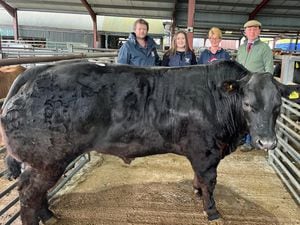Court ruling was important for farm industry
In the event of cross compliance regulations being breached the Rural Payments Agency has strong remedies including imposing fines, penalties, demands for repayment and the ability to recover costs.

The substantial majority of farmers and landowners are aware that cross compliance covers a multitude of subjects within the farming/rural world and what is entailed in signing up to receive Basic Payment entitlements.
The recent High Court decision in the case of Stody Estate Limited and the Secretary of State for Environment, Food and Rural Affairs and the National Farming Union was that a company was wrongly penalised after a gamekeeper poisoned wild birds of prey to preserve game birds for shooting which was a breach of the cross compliance regulations.
The case was dealt with on appeal at the High Court and related to an estate in Norfolk where an offence was committed under the Wildlife Conservation Act 1981 in October 2014. In January 2017, the Department of the Environment deprived the estate of 55 per cent of its farm subsidy for that year.
On March 6 this year a senior judge stated there had been no “finding of fault” against the company or its senior management. The conviction of the gamekeeper did not prove that his crime was directly attributable to his employer. Judge, Mrs Justice May, added that some further inquiry directed at the level of fault, if any on the part of the estate, in connection with the gamekeeper’s actions was required and there was no proper basis for the imposition of a penalty.
The Rural Payments Agency had thought to achieve a 75 per cent reduction in the company’s subsidy. That was reduced to 20 per cent by the Independent Agricultural Appeals Panel but the penalty was upped again to 55 per cent by the Department of the Environment last year.
This issue was of such importance to the farming industry that the National Farmers Union intervened in the case and the court’s decision indicates that farmers are not automatically liable for the acts of their employees, or indeed other third parties, who breach the cross compliance rules. It would be a miscarriage of legal process to apply such a penalty to a farmer who is not at fault.
Businesses should be run in such a way that there is clear evidence that the employees have been properly briefed and that they are aware of the rules of cross compliance. It would be recommended that employees and contractors sign a written confirmation to the employer that they are indeed aware of the requirements of cross compliance and will comply. This will not guarantee success, but it is a step in the right direction.
Steven Corfield is a partner and agricultural specialist at Shropshire law firm, FBC Manby Bowdler LLP.





